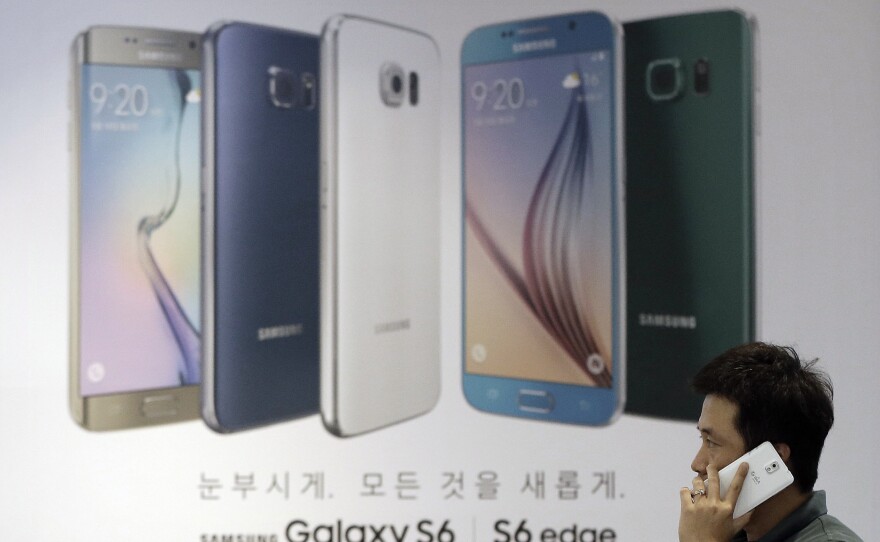The Supreme Court agreed Monday to hear Samsung's appeal of a Federal Circuit court ruling in the company's patent infringement dispute with Apple.
At issue in the case: What portion of the profits is a design-patent infringer liable to pay.
Apple accuses the South Korean tech giant of copying patented aspects of the iPhone's design, such as the round-cornered front face and the colorful icon grid.
In December, "Samsung agreed to pay Apple $548m in damages relating to the same three patents at issue in the case that is now being escalated to the Supreme Court," The Financial Times reported. That's an amount that Samsung argues is excessive. The FT adds that Samsung has "reserved the right to reclaim the funds if the verdict is subsequently overturned."
In documents filed to the Supreme Court, Samsung argues that "it is high time, after a 120 year hiatus, that this Court again examine the scope and valuation of design patents."
The court has agreed to consider the following question: Should a design-patent infringer be liable for all profits from a product that includes a patented component, or just the fraction attributable to the patented part?
In this case, both a U.S. district court and the U.S. Court of Appeals for the Federal Circuit have ruled that the infringer is liable for all profits.
Samsung calls this "absurd" and is arguing the reverse:
"The significance of this holding is hard to overstate: if a patented design is only 1% responsible for the product's sale, the patent's owner still gets 100% of the profits. Under that rule, a jury that awards infringer's profits must award the entire profits on a car (or even an eighteen-wheel tractor-trailer) that contains an infringing cup-holder, and must award the entire profits on every pair of shoes that contains an infringing heel, sole or lace."
A smartphone contains thousands of parts, many of which are functional rather than ornamental, Samsung argues. "The law of the smartphone cannot follow reflexively from the law of the spoon," it says in court documents.
The New York Times has more on the context of the patent laws in question:
"The legal framework for design patents, according to Samsung, some other major technology companies and legal experts, is largely shaped by a 19th-century law intended to protect the designs of carpets, fireplace grates and ornamental spoons.
"Back then, the design was the heart of such products, so seizing most or all of the gains of a copycat — known as the 'total profit rule' — was justified. But today, a complex product like a modern smartphone is a dense bundle of intellectual property with more than 100,000 patents conceivably laying claim to some small aspect of the phone."
Google and Facebook sided with Samsung in this case, The Associated Press reports. "The companies filed a friend-of-the-court brief, saying the Federal Circuit decision will lead to more design patent lawsuits which will stifle innovation."
Copyright 2016 NPR. To see more, visit http://www.npr.org/.






